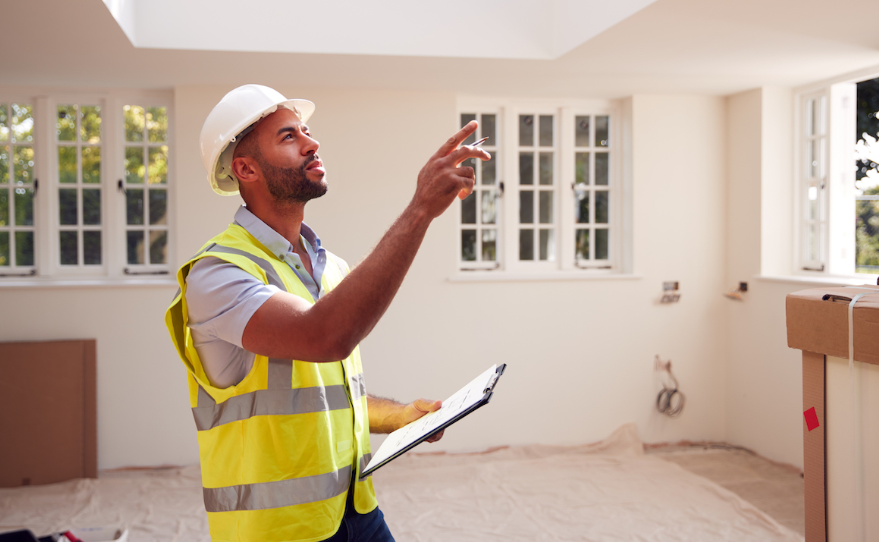Table of Contents
- Introduction to Home Inspections
- What to Look for in a Home Inspector
- Understanding the Inspection Process
- Questions to Ask Your Home Inspector
- Importance of Attending the Inspection
- Reading and Understanding the Inspection Report
- Breaking Down the Report
- Using the Inspection Report to Negotiate
- External Resources for Home Inspections
Introduction to Home Inspections
When it comes to purchasing a home, the process can be both exciting and daunting. One critical step that shouldn’t be considered is the home inspection. A comprehensive inspection of your home can prevent unforeseen problems and extra costs. How do you select the appropriate house inspector for your property? Choosing the right home inspector is essential for accurately assessing the property’s state. In this manual, we will guide you through crucial factors and inquiries to assist you in making a well-informed choice.
What to Look for in a Home Inspector
Choosing the right home inspector involves much more than a quick Google search. There are specific qualifications and criteria you should look for:
- Licenses and Certifications: Ensure the inspector is approved and accredited by respected groups like the American Society of Home Inspectors (ASHI). This certification demonstrates their skill and commitment to meeting industry guidelines.
- Experience and Specialization: Search for inspectors with extensive experience specializing in residential properties. A seasoned inspector is more apt to detect nuanced problems that a novice may need to learn about.
- Sample Reports: Request sample reports to understand how detailed and precise their inspection reports are. A sample report can show you what to expect and how comprehensively the inspector examines the property.
Understanding the Inspection Process
Knowing what to expect during the inspection can help you prepare better and alleviate any anxiety you might have:
- Initial Consultation: Talk to the inspector about your worries and particular sections you wish to concentrate on. This first discussion establishes the mood for the examination and guarantees the inspector comprehends your preferences.
- On-site Inspection: This typically takes a few hours, during which the inspector examines the property’s structure, roofing, electrical systems, plumbing, and more. It’s a thorough process aimed at uncovering any potential issues.
- Detailed Report: A comprehensive report outlining all problems and recommendations will be given after the assessment. This report is crucial to help you make informed decisions about the property.
Questions to Ask Your Home Inspector
Before hiring, it’s essential to ask potential home inspectors several questions to gauge their expertise and compatibility. Inquiring about the inspector’s qualifications and approach to the job can unveil valuable information:
- What does the inspection cover? It is essential to have a clear grasp of the scope. Ensure the inspector examines critical areas like the roof, foundation, electrical systems, and plumbing.
- How long will the inspection take? The length of time may differ based on the property’s size and state. A detailed examination usually lasts numerous hours.
- Can I attend the inspection? Being present during the inspection lets you witness any problems discovered and inquire about them immediately.
- What are your qualifications and experience? Verify the inspector’s background, including their experience and any special training they have received. This will give you a better idea of their expertise and reliability.
Importance of Attending the Inspection
Although not required, attending the inspection can offer valuable insights into the property’s condition. You can ask questions immediately, and the inspector can point out issues. This personal experience can be extremely valuable when deciding whether or not to buy the property. Being there allows you to grasp what the problems are quickly. Observing the inspector’s explanations firsthand is often more enlightening than just reading about them in a report.
Reading and Understanding the Inspection Report
The inspection report will contain detailed information about the condition of the property. Here’s what to focus on:
- Major Defects are issues that need immediate attention and potential repair costs. These are the most important concerns and can be deal-breakers in some cases.
- Minor Defects: Smaller problems that may not be urgent but should be fixed eventually. These are usually less serious but can add up over time.
- Safety Concerns: Any safety hazards that could threaten the inhabitants. These are critical as they impact the well-being of anyone in the home.
Breaking Down the Report
Take your time to read the report thoroughly. Highlight critical sections and jot down any queries you have. A detailed report will empower you to make better decisions. Reviewing the report with your inspector and asking for clarification on any points you do not fully understand is a good practice.
Using the Inspection Report to Negotiate
An inspection report serves as more than just a compilation of problems; it is also an effective instrument for negotiation. For example, if the inspection shows significant issues, you can bargain with the seller to decrease the cost or ask for fixes before completing the transaction. Remember, closing the deal is also in the seller’s interest. Use the information to your advantage to ensure you are getting the best possible terms. Knowing the issues upfront allows you to make more informed financial decisions and can provide leverage in the negotiation process.
External Resources for Home Inspections
For more in-depth information about home inspections and choosing the right home inspector, consider the following resources: Home Inspection Checklist – Forbes. By following these measures and doing extensive research, you can ensure that the house you’re buying is safe, protected, and clear of any undisclosed issues. Selecting the correct home inspector is a crucial part of this procedure. With the proper understanding, you can approach buying a home more confidently and calmly.

